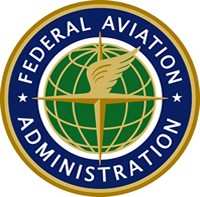May Have Implications In Rectrix Suit
 They might not have
understood how to complete the necessary forms..., but an FAA
review of the annual reporting forms completed by Barnstable
Municipal Airport (KHYA) officials, has determined the use of funds
to be in order, reports the Barnstable Patriot.
They might not have
understood how to complete the necessary forms..., but an FAA
review of the annual reporting forms completed by Barnstable
Municipal Airport (KHYA) officials, has determined the use of funds
to be in order, reports the Barnstable Patriot.
This, in response to a suit against the airport filed by Rectrix
Aerodrome Centers, an FBO operator that claimed the airport was
siphoning funds to the town of Barnstable through an "illegal
monopoly" in jet fuel sales.
As reported by ANN in
October, the airport looked to the FAA for assistance
against the Rectrix suit.
Rectrix claimed a violation of the federal Racketeer Influenced
and Corrupt Organizations (RICO) Act, as the city-owned FBO is the
only source of Jet-A at the airport -- requiring Rectrix, which
caters to the business aviation crowd, to purchase fuel from them
and truck it over to its facility.
In essence, while there was confusion on how to complete several
required FAA forms to account for grant revenues and expenses, FAA
Airport Compliance Division Manager Charles Erhard wrote last
month, that there did not appear to be any misuse of funds.
"We concluded the resulting inaccuracies on the FAA forms did
not constitute a misuse of Airport revenue, but a misunderstanding
by the Airport in completing the two forms," Erhard said. "This was
easily corrected with the re-filing of the forms."
For Barnstable Finance Director Mark Milne, this was good news.
The letter is verification that the town's enterprise system is
well accounted for, he said.
"This is a perfect example of why we needed that."
Airport Commission Chairman Arthur Kimber was "very pleased
because of the thoroughness and completeness of their examination,"
and pleased "that their summary and conclusions indicate the
airport and the town are following FAA regulations and guidelines
and that there are no irregularities" in the filings.
According to the Barnstable Patriot, the airport's reporting on
FAA forms 126 (Financial Government Payment Record) and 127
(Operational and Financial Summary) for the period reviewed are key
to Rectrix' federal civil against the airport, including claims
under the RICO and Sherman Anti-Trust acts.
"We conclude that the amounts reported on the FAA Forms 126 and
127 (resubmitted) are an accurate presentation of the amounts in
the accounting system and as reported in the [Comprehensive Annual
Financial Report]. We found no significant differences," Erhard's
letter concludes.
 In the complaint,
however, the reporting of these forms to the FAA is also alleged to
constitute mail and wire fraud for transmitting "by means of wire
communications in interstate communications that either contained
false representations or were made in furtherance of defendants'
scheme to defraud..."
In the complaint,
however, the reporting of these forms to the FAA is also alleged to
constitute mail and wire fraud for transmitting "by means of wire
communications in interstate communications that either contained
false representations or were made in furtherance of defendants'
scheme to defraud..."
Attorneys for the airport had earlier argued that if the
"predicate acts" for the RICO claims, including filing false
reports and wire and mail fraud, are found to be erroneous, those
claims should be dismissed.
Airport attorneys wrote in an October filing, "If the FAA finds
no violations, as the BMAC expects it will, there will be no
foundation for the allegations of unlawful predicate acts upon
which all of the RICO claims rest."
The January 30 letter from the FAA does not address the
airport's assertion that its monopoly on the sale of jet fuel is
legal and authorized, except to note that the airport "claims a
propriety exclusive on its sale…"
The case, now before a US District Court, remains in the
preliminary stages. At the request of the judge, attorneys for the
airport submitted a set of suggested questions regarding
allegations contained in the suit. The airport sought a "motion to
stay" court proceedings until the FAA had an opportunity to provide
guidance on claims that the airport violated the agency's
regulations -- which it has now done.
Rectrix is due to file its response to the town's filing and the
court request by February 14.
While Rectrix' attorney Marc Kasowitz did acknowledge prior to
the FAA's opinion that the opinion could prove helpful to the
court, he said it shouldn't sway what is, essentially, a matter
between the city and Rectrix.
"While the [defendants'] motion contains a lengthy recitation of
federal aviation law and certain prior proceedings before the FAA,
defendants do not, because they cannot, provide any authority or
valid basis for staying this action in favor of FAA proceedings,
because no such authority or basis exists," the response reads.
"To the contrary, Rectrix's claims arise from defendants'
racketeering, fraudulent and monopolistic practices, as well as the
common law tortuous conduct."
Kasowitz had also filed a cross-motion for a default judgment...
asking the court to rule in Rectrix's favor, as the town's response
(calling on the FAA) is not allowed in this type of lawsuit.

The Rectrix suit also alleges contract interference,
preferential treatment for other airport lessees, unfair business
practices, and intimidation by individual members of the airport
commission.
The five-page letter from the FAA notes the FAA's review was not
an audit. The review was "to determine if the Airport and Town
complied with the Federal requirements that pertain to the use of
Airport revenue," the letter reads. "It should be understood, the
FAA did not perform a financial audit."
With regard to the financial charge for town services provided
to the airport, the FAA wrote, "The Airport's percentage of
allocation was shown along with the percentage for the other Town
departments. The methodology appeared reasonable."
 ANN's Daily Aero-Term (05.05.25): Circle To Runway (Runway Number)
ANN's Daily Aero-Term (05.05.25): Circle To Runway (Runway Number) ANN's Daily Aero-Linx (05.05.25)
ANN's Daily Aero-Linx (05.05.25) NTSB Prelim: De Havilland DHC-1
NTSB Prelim: De Havilland DHC-1 Classic Aero-TV: The Boeing Dreamliner -- Historic First Flight Coverage
Classic Aero-TV: The Boeing Dreamliner -- Historic First Flight Coverage Airborne-NextGen 05.06.25: AF Uncrewed Fighters, Drones v Planes, Joby Crew Test
Airborne-NextGen 05.06.25: AF Uncrewed Fighters, Drones v Planes, Joby Crew Test





